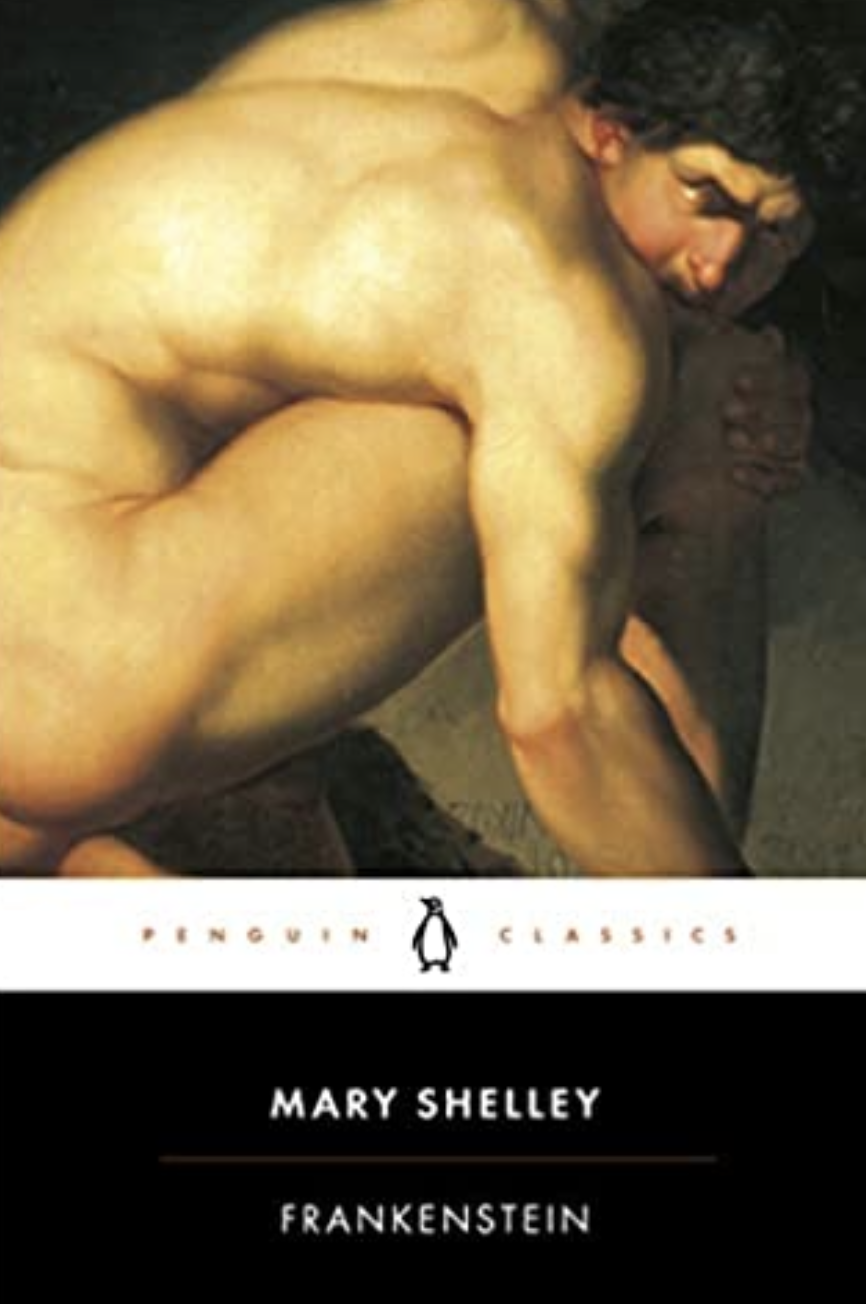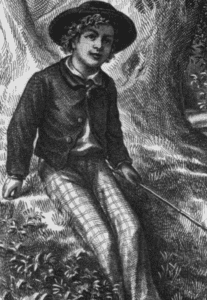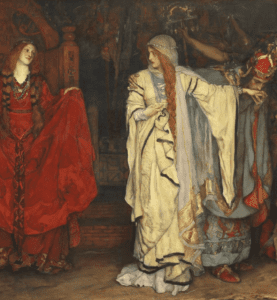Author: Mary Shelley, a 19th-century English novelist
Rarely has a novel captured the popular imagination and inspired innumerable adaptations and references across time and space as Shelley’s Frankenstein. Written in early nineteenth-century England, its theme is the human fascination with the mystery of life, and man’s tendency to play God, unable to control its consequences.
British explorer Walton writes a series of letters to his sister Margaret in England from the Arctic regions of Russia. The novel narrates what Walton describes in his own words and the words of the two main characters. Walton spots a gigantic humanoid creature riding a dog-pulled sled and rescues next morning emaciated and frozen Victor Frankenstein, drifting on a fragment of ice. Frankenstein’s tale explains why he is following the giant.
Frankenstein has a happy childhood as the eldest offspring of a distinguished family in Geneva. Frankenstein’s closest companion is motherless, slightly younger, Elizabeth, whom his parents befriend. Frankenstein’s only friend in school is Henry Clerval. At seventeen, shortly before Frankenstein leaves for university at Ingolstadt, Elizabeth contracts scarlet fever but recuperates, while Frankenstein’s mother dies of it.
Krempe, professor of natural philosophy, and Waldman, professor of chemistry, guide Frankenstein’s studies at Ingolstadt. Frankenstein labors in the laboratory and discovers the secret of bestowing life on inanimate matter, becoming obsessed with giving life to man and creating a new race. Small human parts being a hindrance to his speed, Frankenstein makes his creature eight feet tall.
One rainy November night, Frankenstein’s creation first opens his dull yellow eyes. Though Frankenstein has selected appealing features, the lustrous hair and pearly teeth only show in greater contrast to the white watery eyes and shriveled complexion. Horrified and disgusted, the exhausted Frankenstein sleeps fretfully. He wakes from terrible nightmares to find the creature beside his bed and it runs away terrified.
The next morning Frankenstein meets Clerval, who has joined Ingolstadt. Frankenstein falls ill from nervous agitation and is nursed by Clerval. Two years later, Frankenstein’s father writes of his little brother William’s murder. Outside Geneva, while returning, in a storm at night, lightning illuminates the giant and Frankenstein becomes convinced he is William’s killer.
The young sweet servant Justine loved as a family member, had the miniature of Frankenstein’s mother that was worn by William, in her pocket. Justine pleads her innocence but is convicted. She explains to Elizabeth and Frankenstein she was forced to confess by the priest threatening ex-communication. Overwhelmed with guilt and regret, Frankenstein considers himself the real culprit.
Frankenstein rides in mountains and valleys seeking solace. One day the monster approaches him and accuses him of sporting with life, and not doing his duty towards his creation. The giant narrates how born benevolent and good, misery has made him a fiend. He describes how he starts making sense of his surroundings, living on fruits and nuts or stolen food. People shriek and flee on encountering him. He is shunned and pelted with stones everywhere.
He finds refuge in a hovel adjacent to a cottage, whose dwellers he watches unseen. Over time, the giant becomes attached to this once-noble French family of two siblings Felix and Agatha, and their old blind father De Lacey. He learns language and customs by observing them. He secretly chops wood for them. Admiring their grace and beauty, he is mortified to see his own reflection in a clear pool.
Beautiful Arab Safie arrives and Felix teaches her his language by reading to her, which facilitates the giant’s learning. He realizes that while man is virtuous and magnificent, he can also be vicious and base. Watching the ecstatic Felix with his betrothed Safie, he acutely desires a mate.
He finds some books in the woods including Milton’s Paradise Lost. He equates himself with Satan, whom his creator rejected. In the pocket of the dress taken from Frankenstein’s laboratory, he finds Frankenstein’s notes, learning Frankenstein found him loathsome. Observing blind De Lacey alone, he speaks to him, but the others return and drive him away. The family relocates permanently, and he burns the cottage down in despair.
He wanders dejected and saves a girl who falls in the river, but her companion shoots him. Enraged and hurting, he travels to Geneva when healed. When William threatens William’s father the monster kills him. Finding Justine sleeping, he places William’s mother’s portrait in Justine’s dress, convinced she will spurn his advances. He now entreats Frankenstein to create a woman like him who will not deny him. He promises to remove himself from human habitation, and Frankenstein capitulates.
Frankenstein travels to England with Clerval to prepare. Parting from Clerval in Scotland, Frankenstein goes to remote Orkneys to complete his task. Just before imparting life to the new creature, Frankenstein is overwhelmed with doubt about the consequences, especially if his monsters breed. Frankenstein notices the daemon maliciously watching his progress and destroys his new creation. The monster condemns Frankenstein for dashing his hopes, and promises to be with Frankenstein on his wedding night.
Frankenstein carries the body parts to drop at sea, and his boat drifts to Ireland. He is arrested on landing as the same boat was seen earlier when a body was deposited there – that of Clerval. Frankenstein falls severely ill seeing Clerval murdered like William, and is acquitted on recovery after months when it is proved he was in the Orkneys when Clerval’s body was discovered.
Frankenstein returns to Geneva and marries Elizabeth. They go to Elizabeth’s family villa on a lake. Frankenstein cannot prevent the fiend from murdering Elizabeth on their wedding night, exacting revenge. Soon after, Frankenstein’s father dies grief-stricken, and Frankenstein leaves Geneva to relentlessly pursue his nemesis, till found by Walton.
At his crew’s request, Walton abandons the risky journey, turning south. Frankenstein soon dies, and Walton finds the giant mourning over Frankenstein, saying he has suffered far more than his victims, driven to crime by unsympathetic humans. No man hates him more than he hates himself. He resolves to end his misery by killing himself and leaves on his ice raft.




